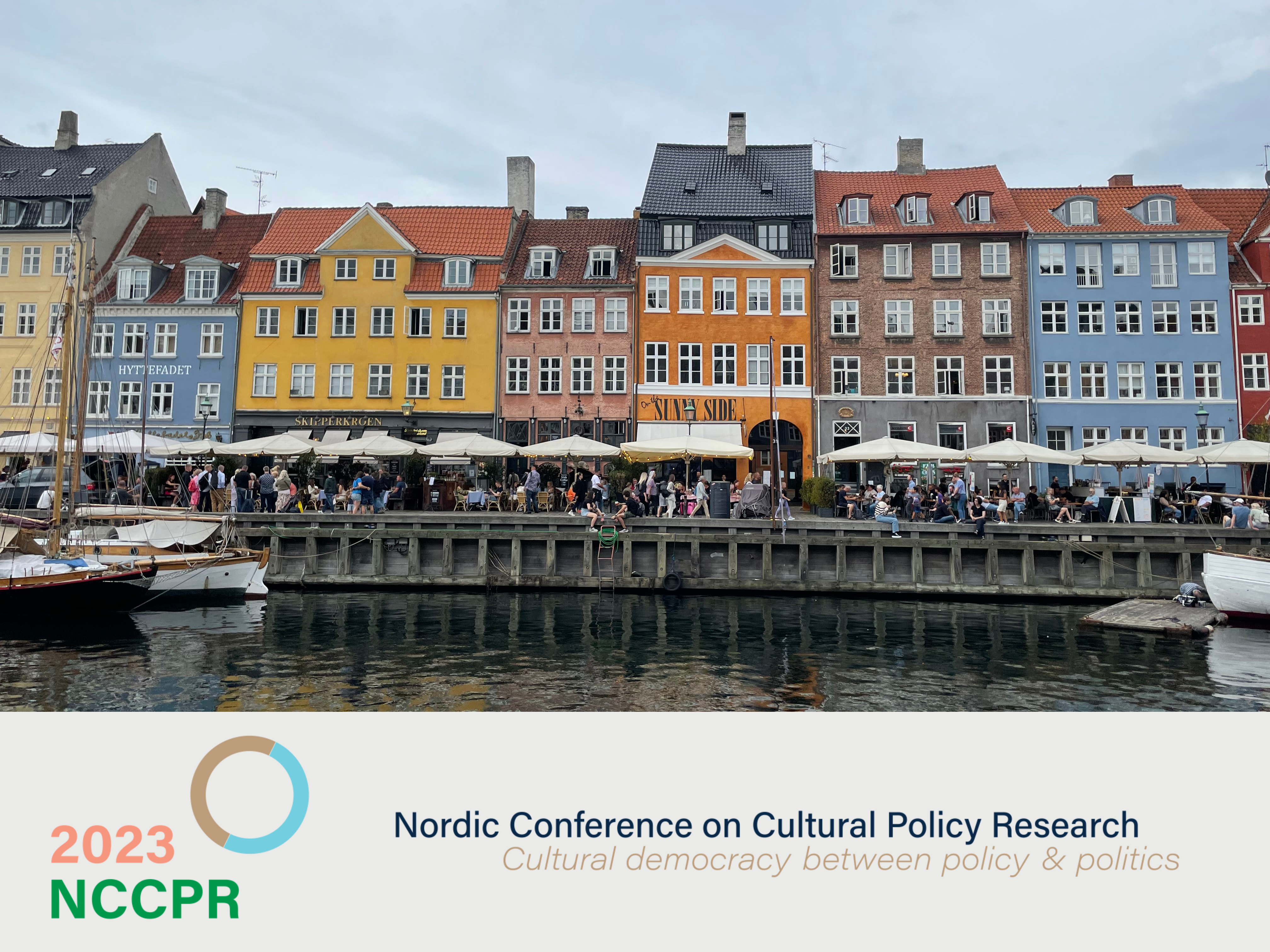 M. Pečiulytė and K. Jonutis in Copenhagen
M. Pečiulytė and K. Jonutis in CopenhagenMarija Pečiulytė, Advisor at the Division of Monitoring and Analysis, together with Karolis Jonutis, the Senior Analyst at the Lithuanian Council for Culture attended The Nordic Conference on Cultural Policy Research (NCCPR) in Copenhagen, Denmark. The conference was organized by the University of Copenhagen with the aim to strengthen the Nordic community regarding cultural policy research and to promote the foundation of Nordic networks of researchers in this field.
Cultural Democracy Between Policy and Politics
The theme of the 11th NCCPR was „Cultural Democracy Between Policy & Politics“. The organizers invited to evaluate how the cultural policy is influenced by the changing circumstances and to reconsider the established values of the common good in cultural policy. Cultural policy research has traditionally focused more on the notion of policy than politics. However, there are signs that cultural policy is facing a re-politization.
This year’s conference focused on the research of cultural policy in the Nordic countries, considering the current context and challenges of today. Until now, it seemed that cultural policy had already developed its tendencies and that all countries had a consensus on how to implement cultural policy. However, the growing movements of populism, extremism and inequality make researchers rethink whether the current cultural policy is being formed correctly? Maybe it should be fundamentally changed?

Nordic Conference on Cultural Policy Research 2023, Welcome Session
“The cultural policy of the Nordic countries is often identified as an aspiration of Lithuania, although it would be almost impossible for us to implement a similar model due to the different economic and social contexts, as well as the peculiarity of Lithuanian cultural policy. However, it was of a great value to attend the event and hear the practices of Scandinavia, as well as other countries, including Scotland, Latvia, or Poland. Although there are many differences, all the mentioned countries deal with the same question - what should be the role of culture and political strategy in society? What is the role of cultural policy when the dissatisfaction with the existing democratic system, economic and social inequality is growing, when the influence of the digital economy and artificial intelligence on creativity is increasing? All these things are relevant to the field of Lithuanian culture and research. The conference was useful, because I got to know new theories and methods that will help me to answer the cultural policy questions of today and discuss with other researchers“, said Marija.
Public Participation in Culture is Important
The conference also focused on public participation in culture. The participants actively discussed the people’s involvement in cultural activities, the importance of social dialogue, and especially the formation of social capital through culture. How can cultural policy become a tool to create an open and trusting society? The society in which culture is a form of self-expression, where artists can discuss and speak freely on different topics? Speakers also discussed if the cultural field has already entered the “post-consensus” era? If so, how can agents in the field of culture navigate this complex situation?
Senior Analyst Karolis Jonutis said that “the conference left good impressions, a lot of attention was paid to the topics of populism and democracy in the context of cultural policy and cultural organizations. Speakers emphasized the involvement of people in culture - it is very important that they are not only spectators, but also participants. The ones who do not only participate in the cultural activities, but also have the power to do an impact. The conference also discussed contemporary cultural tendencies - what is the impact of artificial intelligence on the cultural field, how can cultural organizations be more open, how can a city be nominated to be the European Capital of Culture? The phrase “everything that's solid goes to the cloud“ has struck me and made me think about cultural policy nowadays when all our culture is online on the internet“.

Nordic Conference on Cultural Policy Research 2023 in Copenhagen, #NCCPR2023